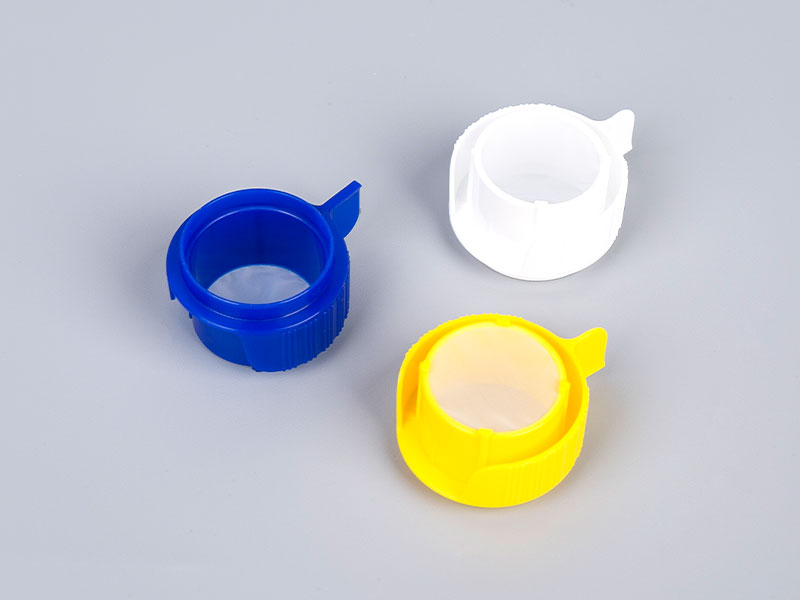The Role of Polypropylene Housing in Enhancing the Durability of Bioland™ Cell Sieves
When we talk about cell preparation, especially for sensitive applications like stem cell research or primary cell isolation, the reliability of your tools is crucial. One key component that ensures the consistent performance of cell filters like the Bioland™ Cell Sieves is the Polypropylene (PP) housing. This robust material is designed to provide exceptional durability, especially when used in the demanding environments of modern biological labs. But how exactly does the PP housing contribute to the durability and stability of the filter during repeated use? Let’s dive deeper into the science behind it.

Polypropylene is widely known for its high chemical resistance and mechanical strength, making it an ideal material for filters that must withstand both frequent handling and exposure to a variety of reagents and biological samples. Bioland™ Cell Sieves, which are designed to fit seamlessly with 50ml centrifuge and cell culture tubes from trusted brands like Corning and Thermo, utilize this material for its ability to endure high levels of stress without degrading. This durability ensures that the cell filters can be reused in a multitude of cell isolation processes, providing reliable performance across multiple applications. Whether it’s isolating stem cells, primary cells, or other tissue-derived cell types, the PP housing helps maintain the integrity of the filter under conditions that might otherwise cause wear and tear in other materials.
Moreover, Polypropylene’s ability to withstand repeated exposure to autoclaving, a common sterilization method used in labs, ensures that Bioland™ Cell Sieves remain intact and functional even after numerous cycles. This feature is especially important for laboratories that need to maximize efficiency without sacrificing cleanliness or precision. Unlike some other materials that may degrade or warp after several rounds of sterilization, PP maintains its shape and performance over time. This resilience significantly reduces the need for frequent replacement of the filters, offering both cost savings and enhanced convenience for researchers.
In addition to its durability, the stability of the PP housing under varying environmental conditions—such as changes in temperature and pH—makes it a go-to choice for cell preparation. The housing not only prevents contamination by maintaining a stable structural form, but it also resists absorbing moisture or reagents that could potentially compromise the quality of the cell preparation. This ensures that the nylon filter inside remains in optimal condition, continuing to perform at its best without interference from external variables. The reliability of PP in these circumstances is a crucial aspect of ensuring high-quality and contamination-free results.
When considering repeated use, another key advantage of the Polypropylene housing is its resistance to wear. In the high-demand world of cell biology, where precision and contamination control are paramount, the consistency of the Bioland™ Cell Sieves is vital. The PP material ensures that each filter provides uniform performance across multiple applications, even when dealing with high volumes of cells or more viscous samples. Its tough exterior helps prevent damage to the filter, such as cracking or warping, which can often be the downfall of other, less durable filter designs. With this level of protection, researchers can trust that their filtration process remains free from unwanted variability, contributing to the success of their experiments.
The Polypropylene housing of Bioland™ Cell Sieves plays a pivotal role in enhancing the durability and stability of these filters during repeated use. With its strong resistance to mechanical stress, chemical exposure, and thermal cycling, PP ensures that the filters perform consistently over time, allowing researchers to focus on their work without worrying about equipment failure. By combining this robust material with a high-quality Nylon filter, Bioland™ Cell Sieves offer a solution that is not only reliable and durable but also essential for the precision and contamination-free cell preparation needed in advanced stem cell and primary cell research.
For more information, please call us at +86-0571-87993109 or email us at hzbioland@126.com.
Aseptic vacuum filters, like Bioland™ disposable vacuum filtration units, are designed for high-effi...
Whether used in the food hygiene industry, water monitoring, or research labs, selecting the right m...
Narrow-mouth reagent bottles are essential tools in laboratories, offering precise storage solutions...
In laboratory diagnostics, particularly in PCR (Polymerase Chain Reaction) testing, efficiency is pa...
When working with the Bioland™ Cell Shaker, one of the most crucial factors in ensuring successful c...
Polymerase chain reaction (PCR) is one of the most vital techniques in molecular biology, allowing s...

 中文简体
中文简体 English
English Español
Español русский
русский











